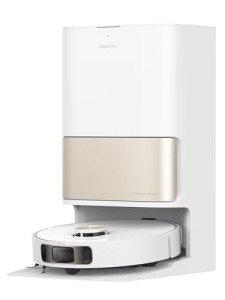Robotic Vacuum Cleaner Comparison: The Future of Home Cleaning
Recently, robotic vacuum have transformed the way we preserve tidiness in our homes. With advancements in technology and the incorporation of artificial intelligence, these devices have developed from simple novelty items to necessary family appliances. This article provides an extensive comparison of some of the leading robotic vacuum cleaners on the market, helping customers make notified choices when selecting a model that fits their needs.
Comprehending Robotic Vacuum Cleaners
Robotic vacuum are autonomous machines created to clean floorings instantly. Equipped with sensors, they navigate around barriers and adjust their cleaning paths for maximum effectiveness. The essential functions that distinguish numerous models consist of suction power, battery life, app connection, navigation innovation, and price.
Key Features to Consider
When comparing robotic vacuum cleaners, potential buyers should take into account the following elements:
- Suction Power: Measured in Pascals (Pa), suction power identifies the efficiency of getting dirt and debris.
- Battery Life: The length of time a vacuum can operate before needing a recharge significantly impacts its cleaning efficiency.
- Navigation Technology: Models may utilize simple random navigation or sophisticated mapping technologies (like LIDAR) that allow them to create a map of the home.
- Smart Features: Connectivity to mobile phone apps or smart home systems can boost functionality and control.
- Filter Type: HEPA filters are suggested for allergic reaction victims, as they trap irritants and improve air quality.
Comparison of Top Robotic Vacuum Cleaners
Below is a comparison table of a few of the very best robotic vacuum readily available in 2023:
| Model | Suction Power (Pa) | Battery Life (minutes) | Navigation Technology | Smart Features | Price (GBP) |
|---|---|---|---|---|---|
| iRobot Roomba i7+ | 1700 | 75 | Smart mapping | App control, voice command | ₤ 949 |
| Roborock S7 | 2500 | 180 | LIDAR | App control, multi-floor | ₤ 649 |
| Neato D7 | 2000 | 120 | LIDAR | App control, zone cleaning | ₤ 599 |
| Ecovacs Deebot T10 | 3000 | 150 | Smart mapping | App control, room detection | ₤ 799 |
| Shark IQ Robot | 1200 | 90 | Random | App control, self-emptying | ₤ 399 |
Description of the Table
- iRobot Roomba i7+: Known for its robust cleaning capability, it includes smart mapping innovation that permits it to designate specific locations for cleaning. Its self-emptying function is a plus for convenience.
- Roborock S7: This model masters suction power and battery life, making it ideal for larger homes. Its LIDAR technology assists develop an efficient cleaning course, and it can vacuum and mop all at once.
- Neato D7: The D-shape design enables better corner cleaning, and it includes strong suction power. Its LIDAR navigation allows it to map out cleaning areas accurately.
- Ecovacs Deebot T10: Boasting the highest suction power and advanced navigation, this model can handle several floors successfully. It's a versatile option for families with differing floor types.
- Shark IQ Robot: An affordable option that still provides smart features. Its self-emptying capability and app combination make it a useful choice for those searching for a solid cleaning buddy without breaking the bank.
Advantages of Robotic Vacuum Cleaners
Robotic vacuum cleaners provide many benefits that add to their rising appeal among consumers:
- Time-Saving: Automated cleaning enables users to maximize valuable time that can be invested in other activities.
- Convenience: Many models can be set up by means of apps to clean up at specific times, lowering manual effort.
- Ease of access: They can reach under furniture and in tight areas where traditional vacuums might have a hard time.
- Daily Maintenance: Regular use of robotic vacuums can assist keep a consistently tidy environment, promoting better total home health.
FAQs About Robotic Vacuum Cleaners
1. How frequently should I run my robotic vacuum?
It is recommended to run the robotic vacuum a minimum of 2-3 times a week to keep tidiness, though day-to-day use can be useful, especially in homes with animals or high foot traffic.
2. Do robotic vacuums deal with carpets?
Yes, lots of robotic vacuums are developed to work on carpets, but effectiveness may differ based upon the model's suction power and brush type. Search for models specifically pointed out as reliable for carpets.
3. Can robotic vacuums tidy animal hair?
A lot of robotic vacuums can efficiently pick up pet hair, but those with strong suction and tangle-free brush designs are especially appropriate for this task.
4. How do robotic vacuum cleaner on sale preserve my robotic vacuum?
Regular upkeep consists of cleaning the brushes and sensors, emptying the dustbin, and occasionally replacing filters to make sure optimal efficiency.
5. Are robotic vacuums worth the investment?
While they tend to be more pricey than traditional vacuums, the benefit, efficiency, and time-saving elements make them a worthwhile investment for many households.
The market for robotic vacuum cleaners continues to broaden as technology progresses, using consumers a variety of alternatives to suit various cleaning needs and budgets. By thoroughly considering features such as suction power, battery life, and smart capabilities, users can choose a model that lines up with their way of life. Whether for benefit, ease of usage, or exceptional cleaning performance, robotic vacuums are unquestionably improving the future of home cleaning.

